While all decent folks encourage and celebrate women thriving in what were historically masculine roles, can the same be said for our treatment of men who are dedicating themselves to duties that were once considered women’s work?
That’s a question I have been personally grappling with for a few years, as I have often prioritized the important (but often thankless!) tasks of parenting and homemaking over climbing the corporate ladder. And it’s a question that was on my mind as I approached the Los Angeles home of Daryl Sabara, a man who — despite achieving a blockbuster acting career of his own — is now probably best known to a new generation of pop culture vultures as Meghan Trainor’s husband, and co-star of the singer-songwriter’s viral TikTok clips.
Before he reached his teens, Daryl had achieved more as an actor than most in the profession manage in a lifetime. He was the star of the ‘Spy Kids’ movie franchise, an unexpected foray into family entertainment by the visionary filmmaker Robert Rodriguez, which earned deserved popular and critical acclaim. Daryl was just nine when he played schoolboy secret agent Juni Cortez in the first movie, and 11 when the final film of the trilogy hit our screens. And having recently rewatched the first installment with my seven-year-old twins, I can report that the action-adventure flick — and Daryl’s performance — has certainly stood the test of time. It’s one of those thoroughly entertaining films that’s equally fun for all the family — a rare and precious find for parents fatigued by watching the same cartoon series on repeat.
But just by looking at the 30-year-old’s Instagram bio it’s clear that role, or even that profession, is not what defines him anymore. That social media bio — perhaps the closest we have to a living epitaph these days — simply says, “Riley’s Dad.” Soon, he’ll be adding a new name to this succinct resume with the couple expecting their second baby, another son, in early July.
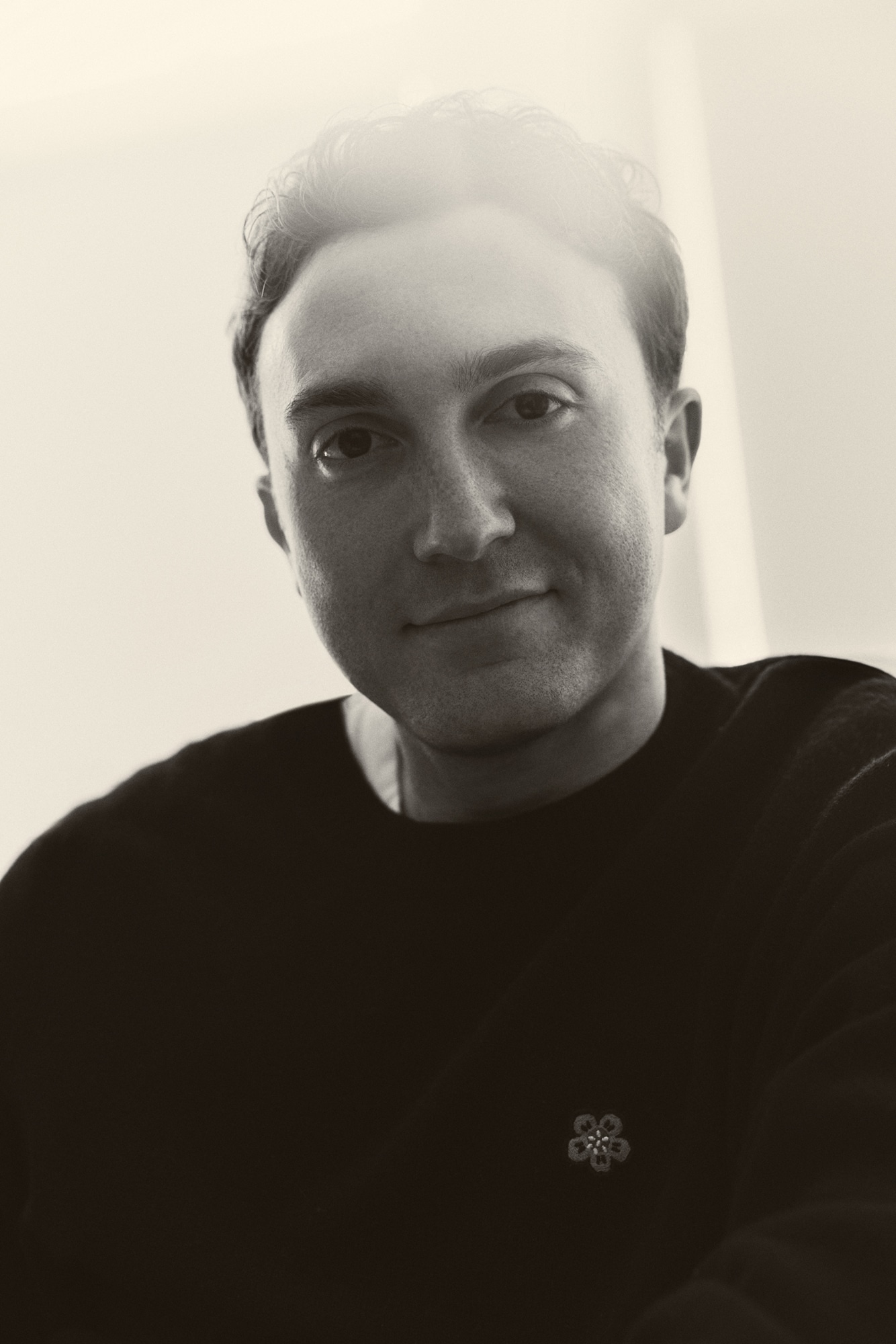
Like all parents, Daryl is learning on the job. And he is doing so without having had a present father of his own to help show him the way. But he believes this could be the secret to his success as a hands-on dad, as he has not picked up the habits and expectations of the previous generation.
“I grew up without a dad — he left when I was one,” Daryl explains, surrounded by toys in the garden of his Los Angeles home. “So I didn’t have that traditional role model growing up and for me, especially as I’m about to be a dad of two boys, I feel like that was a blessing in some ways. I am able to create what that relationship is for me and my sons. I feel like a different generation of man.
“My mom was basically my mom and dad, and she did the best she could. But what I’m learning in my 30s, in therapy and doing my own healing, is that our parents subconsciously imprint onto us. So right now, I’m just figuring out the parts of me that I like and I want to teach my kids, and the parts of me I am not as sure about.
“When Riley turned one, I had this kind of breakdown, as I’d surpassed the amount of time my dad was with me. I couldn’t imagine ever leaving my son.”
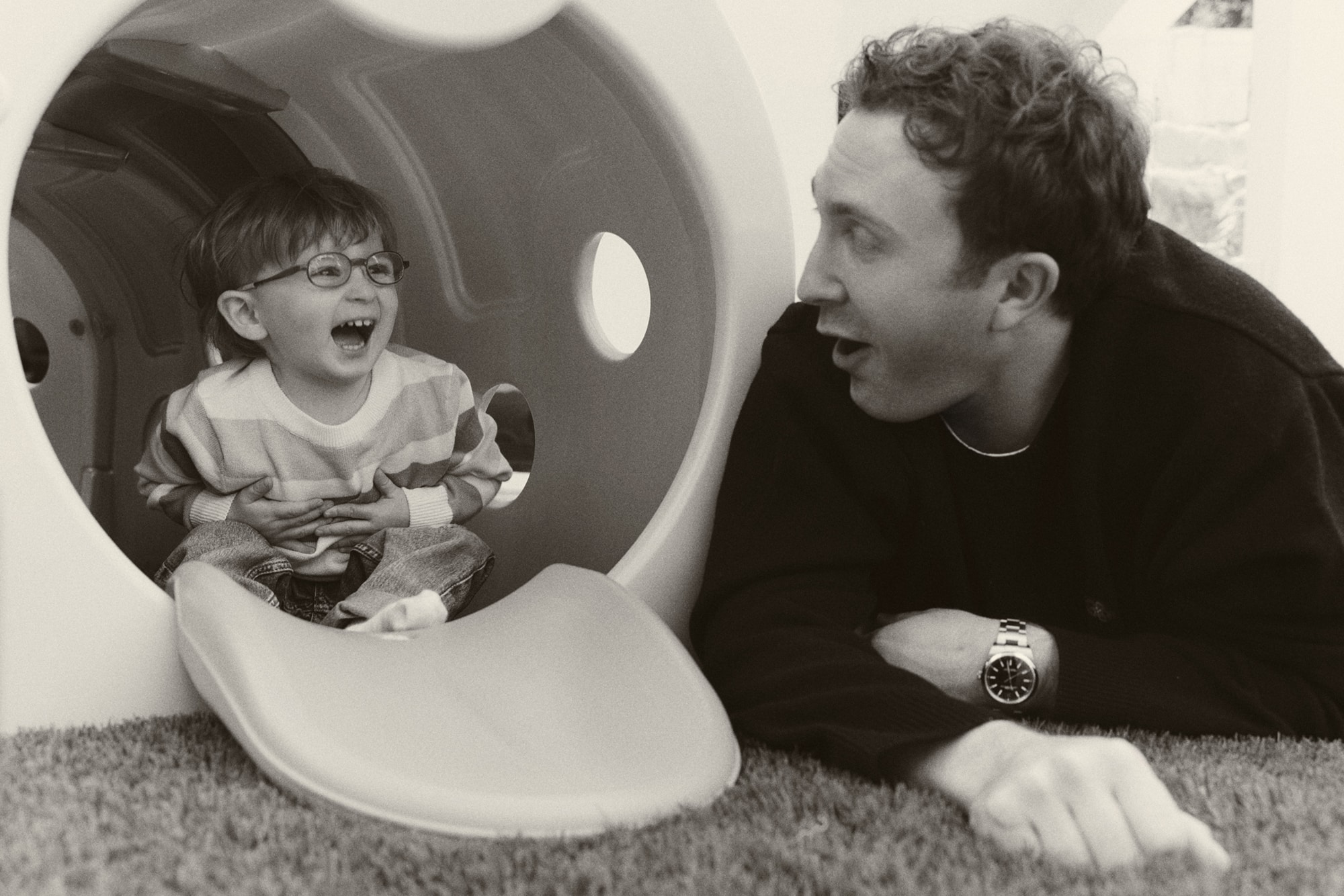
Daryl’s home oozes fun. It’s a modern, white mansion with a swimming pool that would not look out of place at a waterpark. In the garden, an ever-expanding jungle gym is growing on the artificial lawn. Family pictures fill the walls. And his wife Meghan, one of her generation’s most prolific pop stars, is arrestingly down-to-earth, helping out on our photoshoot in her comfortable gray tracksuit, heavily pregnant, and lightening the mood with stories of the less glamorous side effects of carrying a child.
“I feel like I’m on my second life right now,” Daryl says. “As much fun as I had doing the ‘Spy Kids’ movies, I did miss out on a lot of childhood. I’ve had my super-highs, and super-lows. Riley is now teaching me to play. Kids are always in the present, and Riley is a constant reminder to bring me into the present and not worry so much. When I get into those states of play with him, it’s like a flow state. I try to lose my phone so I can just experience that joy.
“I’m so grateful that I get to be so hands-on. I didn’t have a dad in my home growing up, but from watching movies, the way I used to think about fatherhood was: Dad goes to work, comes home, and mom puts the dinner on the table. And my experience couldn’t be more opposite. I’m almost a stay-at-home dad.”
It is clear Daryl is a total natural in his role as attentive father to Riley, two, and an integral half of his partnership with his hugely successful wife. But the part he needs to work on (and I tell him I can certainly relate to this) is the self-acceptance that what he is contributing — to his family and to the wider world — is enough. He tells me a story of an actor pal whose career he looks at enviously on Instagram, despite knowing that in reality, that chap is desperate for what Daryl has — a happy family. (For me, somewhat embarrassingly, it’s not Instagram but LinkedIn that triggers my irrational social media FOMO these days. Although, when I look beyond the filter of the digital persona of my peers, I’m completely aware that editing a national newspaper, or running a global PR empire, would probably be far less fun than picking my children up from school.)
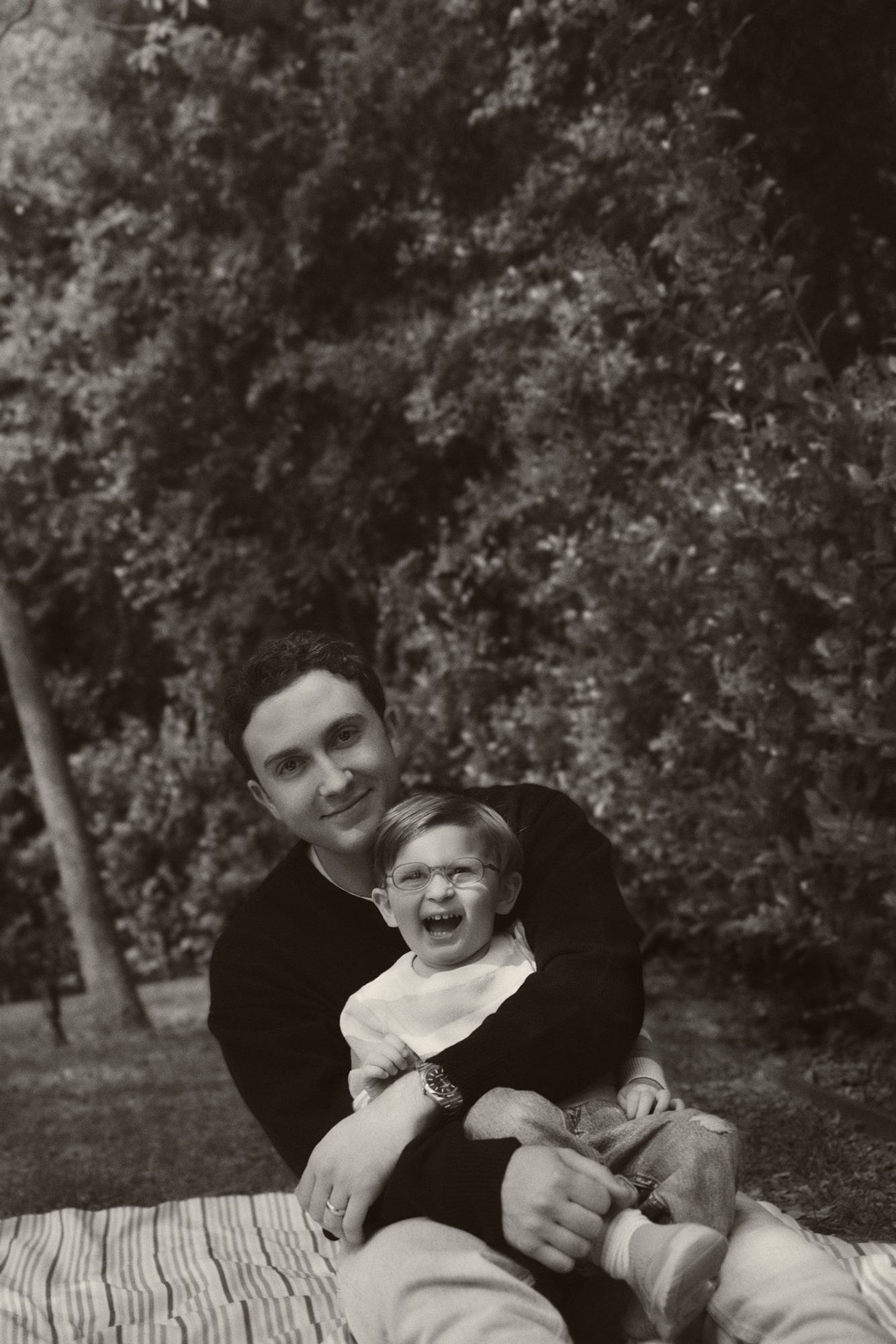
“The biggest issue many of us have is we compare ourselves to other people, and that’s something I’m really working on,” Daryl says. “As an actor, your least favorite question is, ‘What’s next?’
“I felt like I was retired at 12. We did ‘Spy Kids’ one, two, and three — back to back. So that was five years straight. And then, after that, I was 12 and was going through puberty — and that was really weird.
“But when I’m with Riley, that’s pure joy. I’m not comparing myself to other dads. So it’s about trying to embrace that, instead of wishing my career was popping. Life has given me fatherhood, and the freedom to enjoy being a dad.”
Before Riley, Daryl explains that he had another mentor to help him feel comfortable in his own skin — the late, great actor and comedian Robin Williams.
“Having done those ‘Spy Kids’ movies as a kid, I tried to do everything I could to shed that image as a teenager. People would come up to me and ask if I was in ‘Spy Kids’, and half of the time I would say, ‘No’. I was kind of ashamed of it. I just wanted to be me. A lot of it was puberty and hormones, and feeling insecure. I went to public school, and was bullied for being ‘the ‘Spy Kids’ kid.’ Now I’m older I can see jealousy played a part there, but it didn’t feel like that at the time.
“So I was trying to get so far away from that, and I did this movie called ‘World’s Greatest Dad’, where I played the most vulgar teenager you can imagine, and Robin Williams played my father. I got to spend two months with him while we filmed this movie in Seattle. We would go out to dinner, go out to comedy shows, and he was so kind to everyone he met. When I witnessed that, I realized that if one of the most famous people in the world could have such a kind spirit, I could be that kind and connect with people too.”
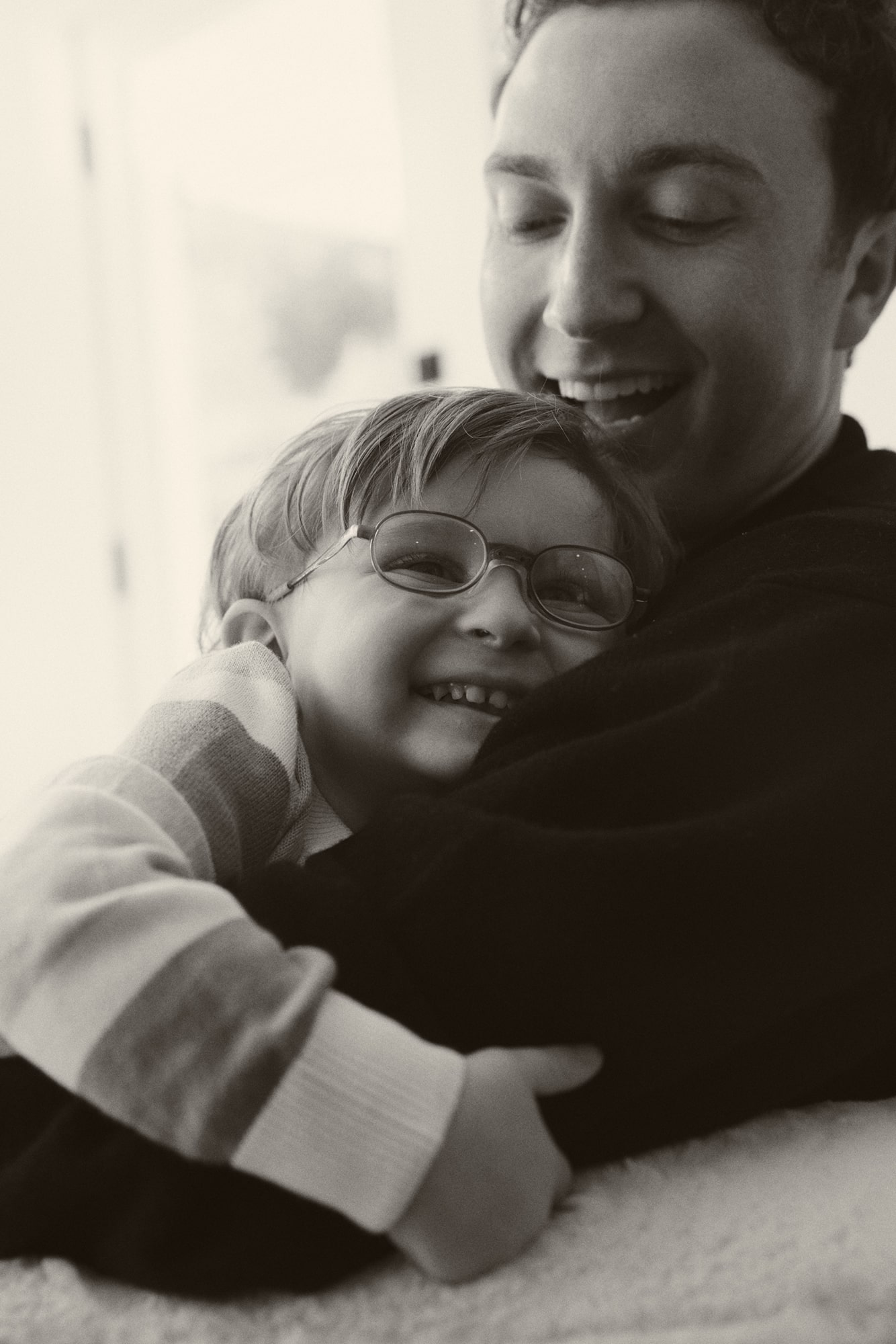
Another tool Daryl has used to navigate life’s challenges is meditation. He was first introduced to the practice by ‘Caddyshack’ actor Michael O’Keefe, when they co-starred in a play at New York’s Public Theater called ‘The Library’, about a High School shooting loosely based on the 1999 Columbine tragedy, directed by Steven Soderbergh. That was almost a decade ago, when Daryl was 21.
His practice began with calling a number from the landline in his New York hotel room to join a group meditation session to help ease his insomnia. It then turned into daily use of the Headspace app as that platform burst onto the scene to demystify mindfulness. And it has now become a dedication to a Transcendental Meditation practice, the specific technique that requires followers to repeat their unique mantra as they meditate for 20 minutes, twice a day.
“I just spent two months in Australia with Meghan while she was doing a TV show out there, and I got depressed, and I didn’t know why. What I like about the meditation practice is that it’s not perfect, just as our lives aren’t perfect. It’s a time for me to just be honest with myself, and go, ‘Oh, I’m not feeling so great today? But that’s fine.'”
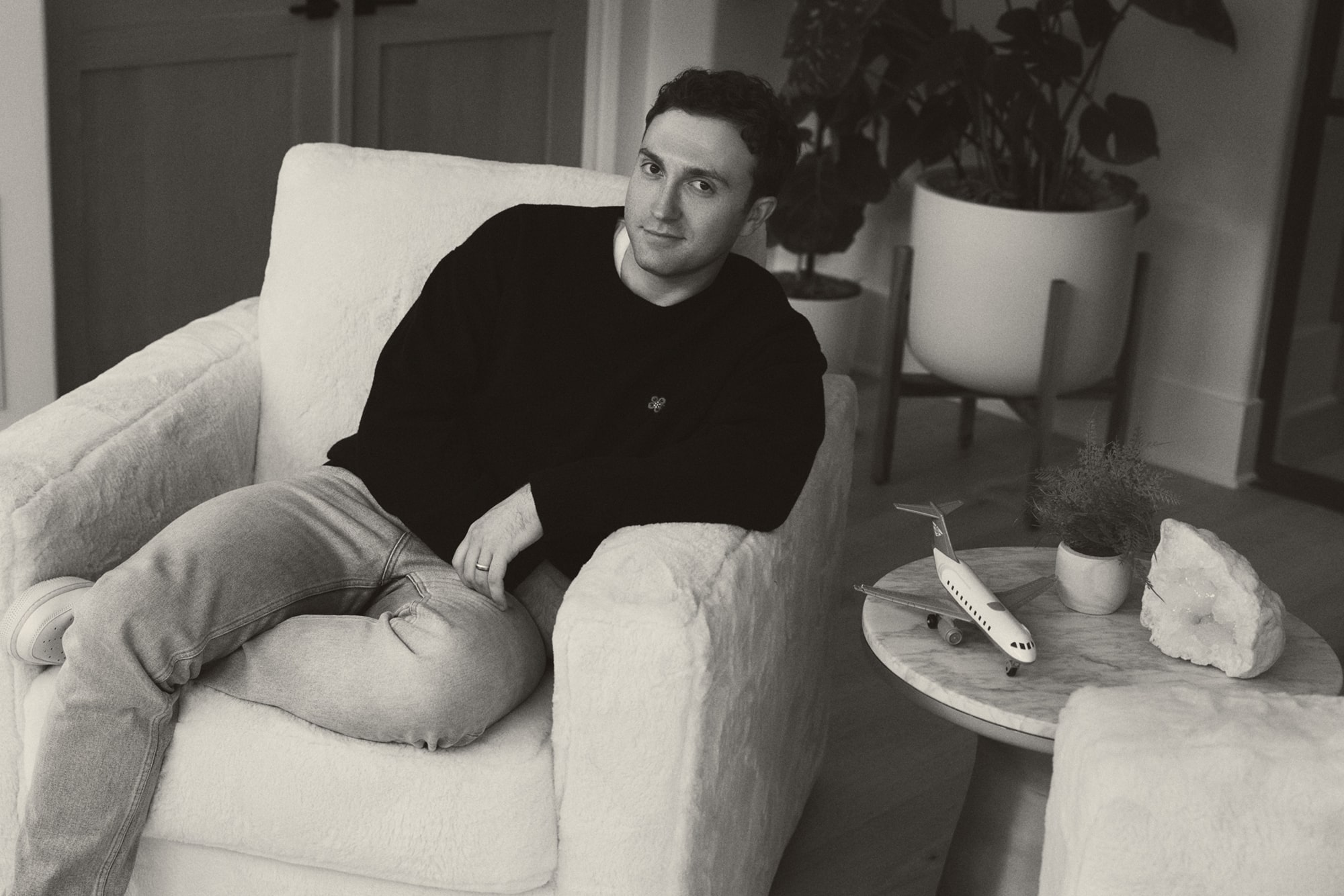
Daryl is also now sober, having given up both alcohol and weed. “I had my first hangover as a dad almost a year ago,” he recalls. “That was the worst feeling in the world, and I said, ‘I’ll never do this again.’ Also, for a really long time the only thing that I knew about my dad was that he was an alcoholic. And it’s genetic. So after that hangover, I said, ‘I surrender. I never want to feel this way again.’
“Sobriety has given me more clarity. It’s just a way to free up space, and helps with the overthinking. And three months after I made that change, we found out we had another baby on the way.”
As I grapple with the baby gates on my way out of Daryl’s home, I feel heartened by another Mr Feelgood interview of great value to myself, and I hope also Daryl and some other folks reading this. Like all of us, Daryl’s story is tinged with a little sadness, but he is now, in his 30s, finding the self-confidence and inner peace to embrace and enjoy his extraordinary life. And this fantastic father is not finished yet.
“We’re starting a farm! My wife always wanted to be a mother, and when she wants something, she f***ing wants it! So we’re going for four. And after that, we might go for four more!
“Not having a dad myself, I never saw myself being married, and never saw myself being a dad. Now, my life is just unfolding, and I’m getting all these amazing experiences I never thought I would have. I love being a husband. My wife just makes me a better person. And Riley has brought me so much joy — I can’t wait to see what my next son teaches me.”
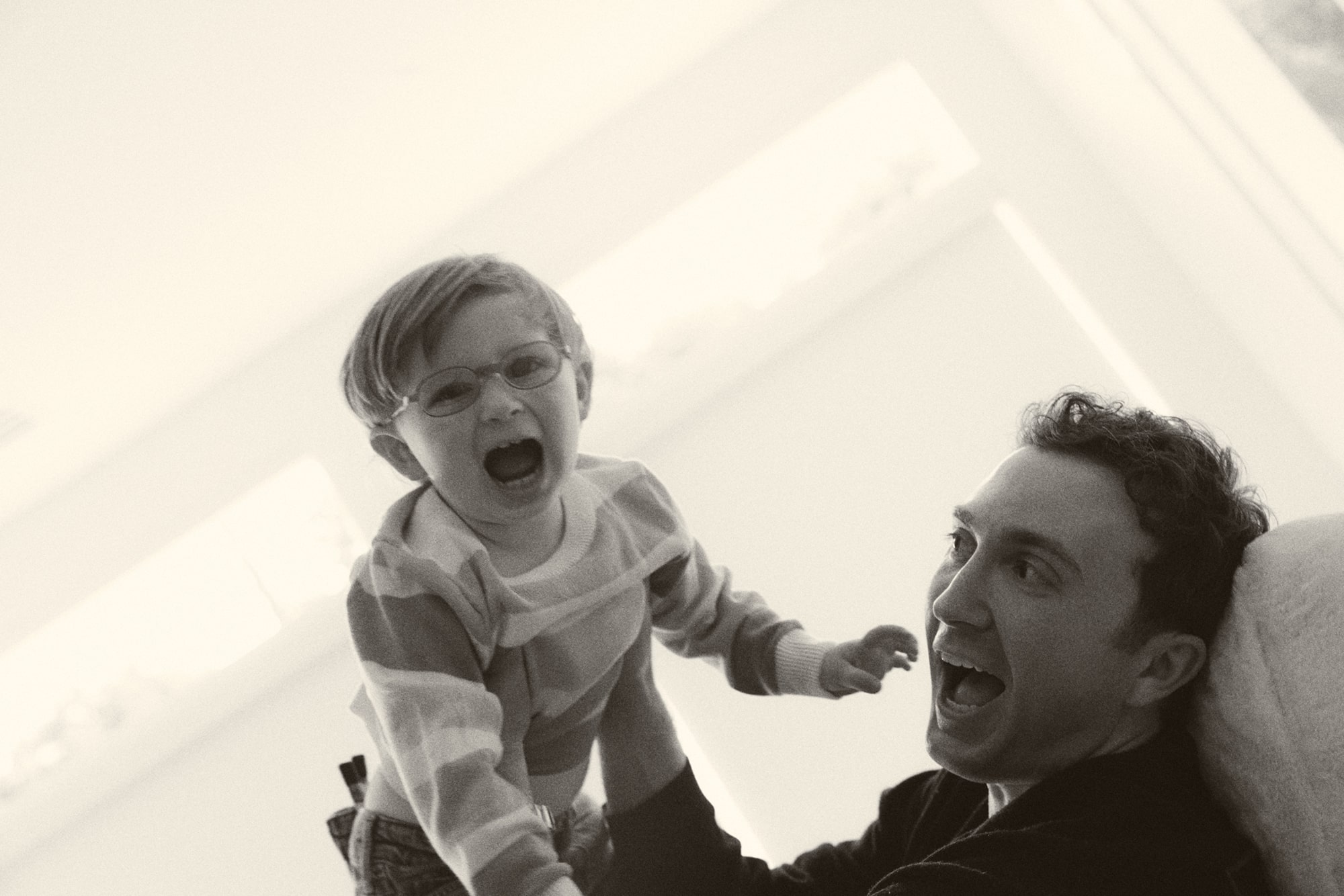


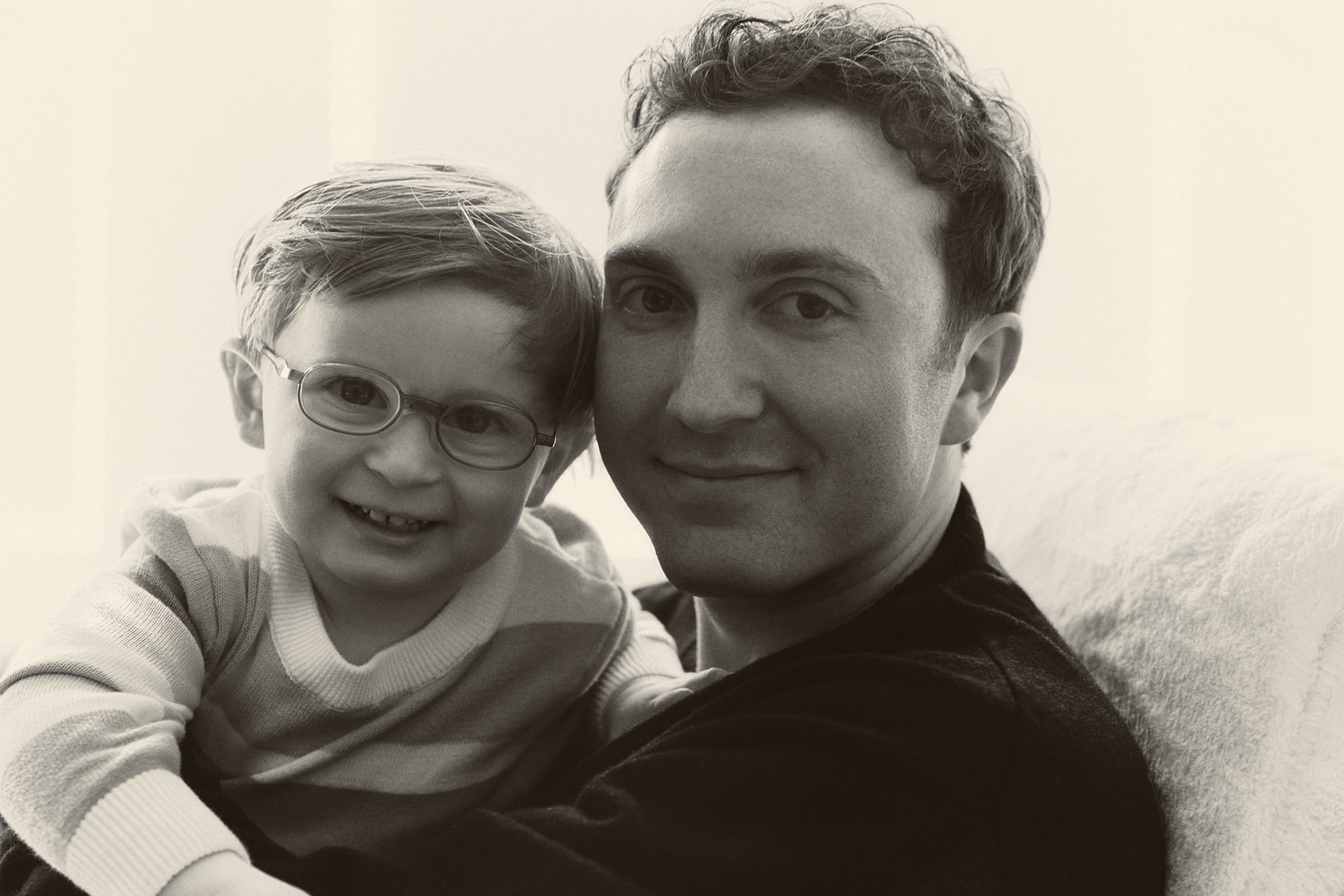
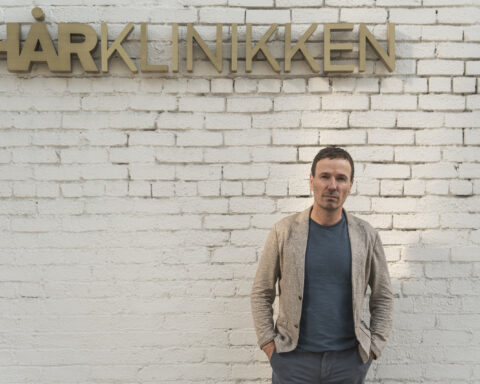
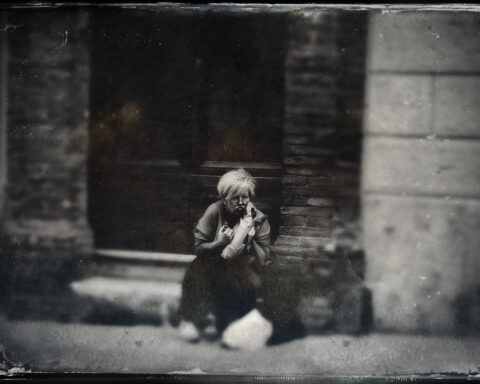







Hi Daryl!
My wife Khrystyne and I are currently going through fertility and unfortunately have had 2 failed IVF Cycles. We are now going the Embryo Adoption route and have found a family in Florida who is donating their embryos to us!
My mom was kind enough to set up a GoFundMe for us for the expenses we will incur. We’re donating a portion of the funds received to the Fertility Friends Foundation, a charity that helps families struggling with infertility by providing financial assistance and resources. If you feel compelled to contribute to our journey or share it, we’d be extremely grateful 🙏 https://gofund.me/a9fb620f
What an inspiring post! It’s incredible how Riley is helping you embrace that childhood joy you felt you missed out on. It’s never too late to learn and experience new things. Looking forward to hearing more about your journey!
What a heartfelt post, Daryl! It’s inspiring to see how you’re embracing your passions and learning through Riley. Childhood experiences shape us in so many ways, and it’s never too late to discover the joy of play. Keep sharing your journey!
What a heartfelt post! It’s so inspiring to see how Riley is helping you rediscover the joy of childhood. It’s never too late to embrace those experiences, and I love how you’re turning your missed moments into new memories together. Can’t wait to see what adventures you both embark on!
I really enjoyed reading this post, Daryl! It’s so relatable to think about how our childhood experiences shape us, and it’s heartwarming to see how Riley is helping you embrace that part of life now. Keep sharing your journey—it’s inspiring!
It’s inspiring to see Daryl embracing new experiences with Riley. It’s never too late to learn and enjoy the simple joys of childhood. I love how he’s cherishing these moments now!
Thank you for sharing your journey, Daryl! It’s inspiring to see how you’re embracing new experiences and making up for lost time. Riley sounds like a wonderful influence in your life. I’m excited to see how this new chapter unfolds for you!
It’s so heartwarming to read about how Riley is guiding you to experience the joys of childhood. Your reflections on missing out resonate deeply, and it’s inspiring to see you embrace these moments now. Here’s to making new memories and enjoying the simple pleasures of life!
What a heartfelt post, Daryl! It’s so inspiring to see you embracing these moments with Riley. It’s never too late to rediscover those childhood joys, and I admire your openness about your experiences. Here’s to making new memories!
It’s really touching to hear how Riley is helping you embrace your childhood experiences now, Daryl! It’s never too late to learn and enjoy those moments. Your journey is inspiring!
It’s so refreshing to see someone like Daryl embracing new experiences and learning from them later in life. Riley sounds like a fantastic influence, and it’s heartwarming to hear how he’s helping Daryl rediscover the joys of childhood. Can’t wait to see how this journey unfolds!
What a heartfelt post! It’s so inspiring to see you embrace new experiences and learn from Riley. It reminds us that it’s never too late to rediscover the joy of childhood. Keep enjoying those moments!
What a heartfelt post, Daryl! It’s inspiring to see you embrace those childhood experiences with Riley. Playing and connecting through games sounds like such a beautiful way to bond. Can’t wait to see how this journey unfolds for you!
It’s inspiring to see how Daryl is embracing new experiences and learning from Riley! It’s never too late to discover the joys of childhood. Looking forward to seeing more of their adventures together!
It’s so relatable to hear Daryl share his experiences! It’s inspiring to see how Riley is helping him rediscover play and joy in life. Childhood may be behind us, but it’s never too late to learn and grow. Thanks for this heartfelt glimpse into his journey!
It’s inspiring to hear how Riley is helping you rediscover those childhood joys! It’s never too late to embrace your inner child, and it sounds like you’re making some beautiful memories together. Keep sharing your journey!
What a heartfelt read! It’s inspiring to see how you’re embracing new experiences with Riley. It’s never too late to rediscover joy and playfulness in life. Looking forward to hearing more about your journey!
What a heartfelt post, Daryl! It’s inspiring to see how Riley is helping you reconnect with your inner child. It’s never too late to embrace those experiences, and your journey is a reminder that joy can be found at any stage in life. Looking forward to hearing more about your adventures together!
What a heartfelt post, Daryl! It’s so inspiring to see you embrace your childhood now through Riley. It’s never too late to learn and enjoy those experiences! Keep sharing your journey with us!
What a heartfelt post! It’s inspiring to see how Riley is helping Daryl reconnect with his childhood. It’s never too late to learn and experience new things. Looking forward to hearing more about their adventures together!
What a heartwarming post! It’s so touching to see how you’re embracing this new journey with Riley. It’s never too late to experience the joys of childhood, and it’s wonderful to hear how you’re learning and growing together. Keep enjoying those moments!
[…] Trainor and Daryl Sabara’s story began as a friendship that slowly turned into romance. Over time, their bond grew stronger through […]